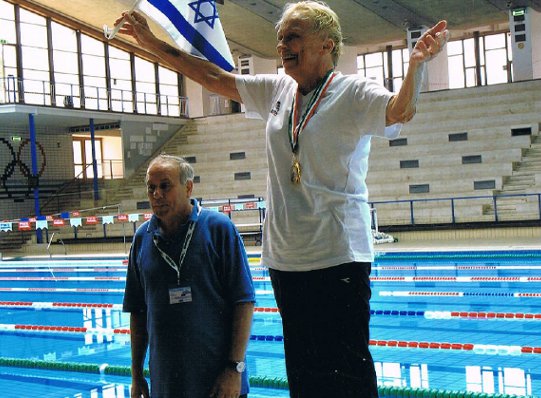
Nancy Tamir, a lung transplantee, tells her story of how she survived a death sentence of irreversible emphysema to win six gold medals for swimming.
As the El Al Airlines airplane was rapidly descending onto the runway at Ben Gurion Airport I heard the contents of the passengers’ handbags in the overhead luggage carriers making such a racket in their restrictive prison – it was as if they felt trapped. I too knew what it was like to be a prisoner, ensnared in such a shell; there was a time when I was longing to be set free while living in the shadow of death. My whole body would fight for the right to breathe, heaving unmercifully as I gasped for another fraction of oxygen. Over and over I tried soothing myself with the words “I want to live. I want to live.” It seemed such a pathetic attempt at maintaining my dignity.
I’m fondling the medals which I won in Naples, Italy at the European Transplant Games for Lung and Heart Transplantees whilst counting the minutes to landing. Six gold medals – what an achievement. Thinking of the two and a half years of ‘enduring’ until the medical profession was able to find a suitable lung, I coddled the fruits of my labor. I know this will be a wonderful incentive in giving motivation to other transplantees and even to my own children later in life when they come across difficulties of their own to cope with. I was fortunate to live on through the traumas I had to face; now I wanted to do something positive to help other transplantees fulfill their dreams. Also, I wanted my children and grandchildren to remember my struggles and take encouragement from that powerful episode into their lives. There are no “I can’ts” or self pity in me. I continually remind myself that though the joy of winning medals is marvelous, my most precious medal is the ability to celebrate life itself.
Thinking back on my life during that two and a half year period, tears quickly gather in the corners of my eyes. “Emphysema” the doctor declared, none too gently. He assumed correctly that I knew the death sentence that word held. In a haze, I heard his voice again as he continued, “Irreversible situation. Only a lung donor can give you the quality of life that you desire.”
I hope no one in the plane is watching as the tears silently roll down my cheeks. Transplantees cry a lot in the first years. The reason probably is because of the strong medication taken to prevent rejection of the foreign lung. Anyway my fellow passengers know something is wrong, as I have to wear my uncomfortable mask in flight. They probably think I have an infectious disease, but the mask is really against diseases they may be carrying, or because of the bacteria in the air of the plane due to poor circulation. Before the operation so many people were praying for my life, coming to visit for 15 minutes before I passed out from the effort of it all. Only the shortest of visits were possible, and the doctors and nurses were giving their all for my wellbeing. The oxygen tank was my true love in those days and the palpitations of my heart when the tank stopped for whatever reason caused such panic and fear.
The aircraft suddenly dipped, a bottle slid off the counter in the galley of the plane and must have smashed into smithereens on the floor. I remembered so well when this happened at home. “How can I pick up the pieces? How can I wipe up the mess of all this Worcestershire sauce on the kitchen floor?” I would quiver fearfully. Incidents like this were the low point of my day, as I tried to solve the problem of getting some air into my lungs and mop up the sauce at the same stressful time. It seemed to take hours to figure out how to do it. I had to switch over to my portable tank which was easier to manage. Then I had to get the pail and rag from the outside porch, put a little water in it, but not too much, otherwise it would be too heavy to carry to the kitchen. Somehow I had to slide down to the floor and begin to clean up the mess, being careful not to cut myself on the slivers of glass. How do I get back up? Hours of preparation, thought and occasional rest accompanied such a minor task. But what satisfaction after I had completed the mission and was standing on my feet again, even though I huffed and puffed from the exertion.
And so the empty days continued endlessly. Walking? The most I could do were ten steps at a time, and even that number seemed extreme. My self-esteem dropped to zero. I had lost my identity. Who was I? Where was the 62-year-old lady who had been so active; the lady who loved to hug and get kisses from her grandchildren? Gone – was it for good? I dared not even let that be an option. Reading? No, impossible to concentrate. Eating? I lost a great deal of weight not craving for food of any kind, eventually hitting 48 kilos. Swimming? Of course I didn’t have any energy for sport. Most of my hours were spent in an oblivious sleep. However, I always had faith that my devoted and awe-inspiring physician would find the donor for me.
Organ donations are problematic in most countries of the world. Some ethnic groups are superstitious, some are unaware of the importance of such a donation and others are simply ignorant. There are countries where the human body belongs to the government or the population is very religious so donating is not a problem. Therefore, the biblical quotations from the Old Testament, Exodus 21:19 “You shall surely heal.” and Leviticus 19:16 “Do not stand idly by as the blood of your neighbor is being shed!" have special meaning for them. In this country of mine only 4% of the general public agreed to the procedure of donating organs, and then, only with the consent of their families. Here it is a precarious waiting game of hoping to find the “right” match with consent after death.
How insensitive to think like that, waiting for the “right” person to come along, but this is the psychological dilemma which all transplantees have to face. Maybe that is the reason for crying so much in the initial steps towards recuperation. On one hand I was praying for a miracle for myself – how totally selfish – but on the other hand I knew that saving my life was at the expense of another. Many months, even years after the operation, the idea twists my heart. Sitting here, waiting for the final “fasten your seat” sign, I remember that rainy, stormy night when I got my call from the hospital – the call that I wanted so badly, announcing that a potential donor might be available. It was my physician ordering me to come immediately to the hospital. What an emotional landslide. “No, no. I can’t. I’m in the middle of a bridge game and haven’t finished my wine yet, I’m not ready yet,” I pleaded, with fear pounding in my heart. The good doctor heard this so often from needy lung patients who were so scared of that final move towards freedom when faced with this final step. Would I regain consciousness after such a complicated operation? I was uncertain whether these were to be my last thoughts.
“Nancy, wake up. Wake up Nancy.” My physician was at my side when I took my first intake of fresh air as a transplantee. I can still hear the “whoosh” as the air entered my body. I had made it. I was alive. I had a new status in life and had to go on to prove my worthiness of receiving this gift. The intensive care unit was alive with light; the nurses were smiling happily and my son and daughter-in-law were at my side. She was hugely pregnant with twins and here I was inhaling life like a newborn baby.
I had my second chance.
I look at Sasha’s picture and give my thanks to this young donor whose life had been cut off at the tender age of 21. At least I don’t cry much any more looking at him. Sasha was a Jewish immigrant who wanted to serve in the army. His father lived in Israel while his mother chose to stay in Russia. After a year of service Sasha asked for and received a year’s leave of absence; he wanted to see his loving mom whom he missed so much. He was working as a guard, trying to make money for the ticket, and he was shot while carrying out his duty. Transplantation couldn’t take place until his brain cells were declared dead and during that interval his mother's permission was sought in order to harvest his organs. In return, his burial would be in his hometown in Russia.
Sasha’s loss of life allowed me to continue to do what he loved; it transpired that he had been a champion swimmer in Russia with medals galore. Every dive I made into the water was for Sasha, every success was for the both of us. I worked very hard in the water and went to transplant swimming competitions all over Europe. I competed in Ireland, Austria, Italy and France and succeeded in bringing back many gold medals. One such medal is draped around Sasha’s picture; a few are displayed with pride on my doctor’s wall. And, of course, every grandchild has “her” gold.
My group of transplantee friends and I share a deep brotherhood. We care for one another, give a shoulder to cry on when needed, have social events together and understand one another. We go to compete in the European competitions with pride. We are fortunate because, in spite of having been through heart-rending times, we know the medals are symbolic of the more important meanings of life for us.
See also the video clip of Nancy telling her story http://www.youtube..com/watch?v=i_01oShFpvEy
Footnote: On March 29, 2012 her book "Butterflies and Bombs" was published on eight different E- books.
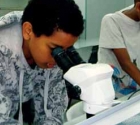 Visit to Michmoret Research Center - Gifted Children's Project
Visit to Michmoret Research Center - Gifted Children's Project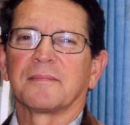 Esra Kfar Saba Meets Our New Deputy Mayor
Esra Kfar Saba Meets Our New Deputy Mayor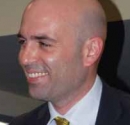 Another glorious evening with pianist Gil Shochat
Another glorious evening with pianist Gil Shochat Yad Sarah's new house in Raanana
Yad Sarah's new house in Raanana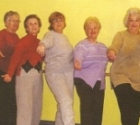 English speaking Feldenkreis
English speaking Feldenkreis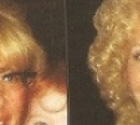 Men don't Make Passes at Girls who Wear Glasses
Men don't Make Passes at Girls who Wear Glasses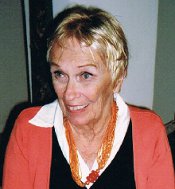 Nancy Tamir
Nancy Tamir